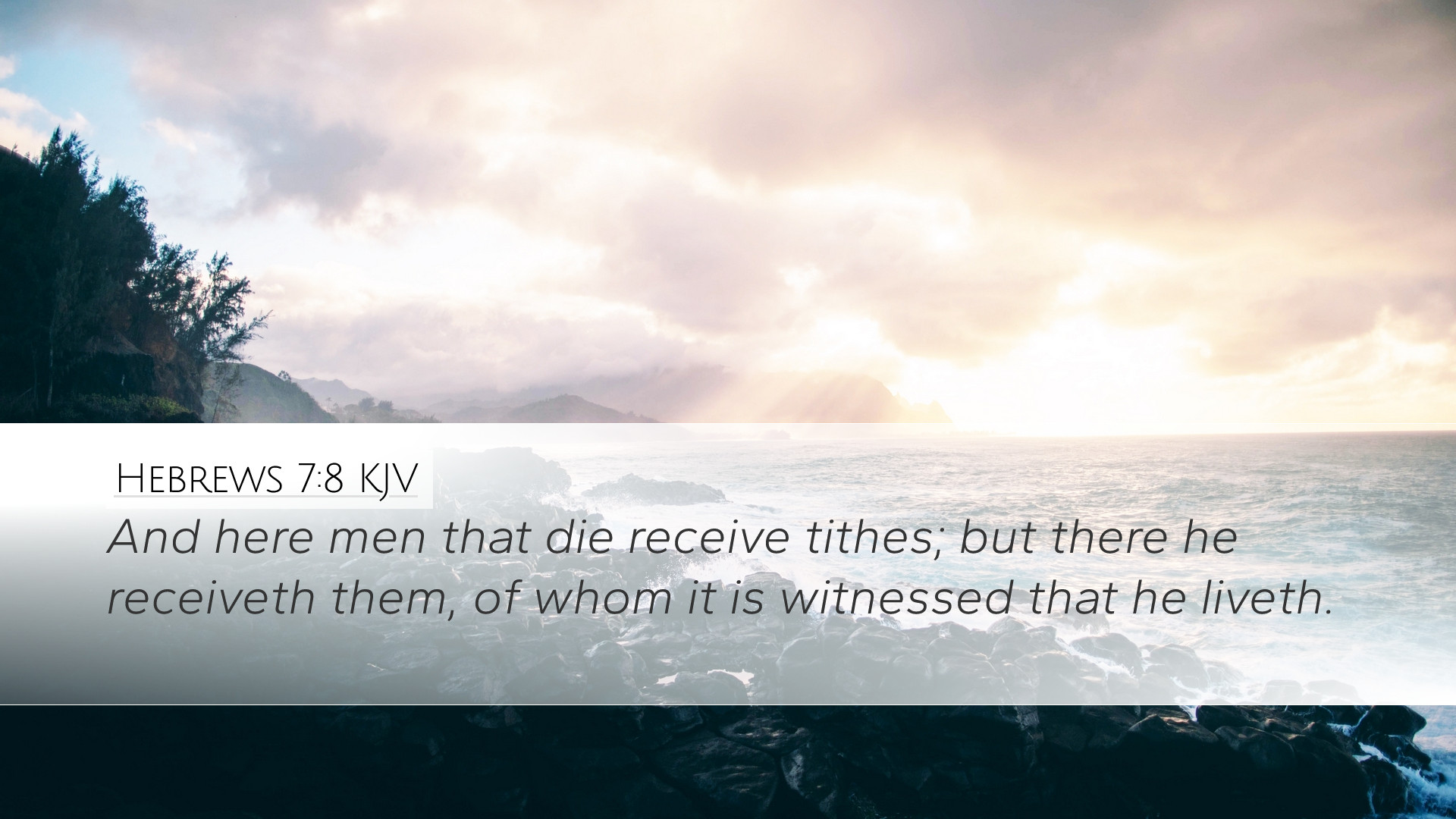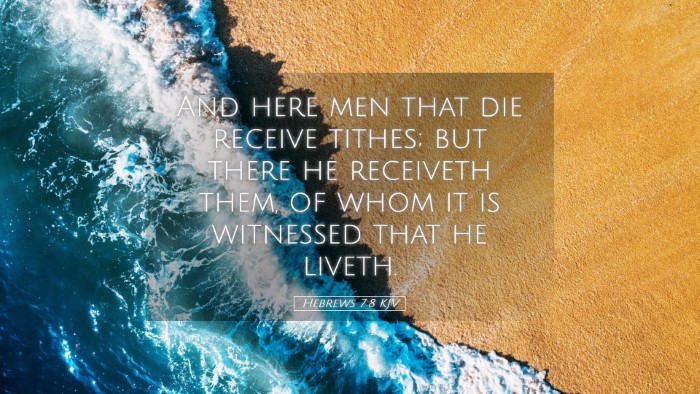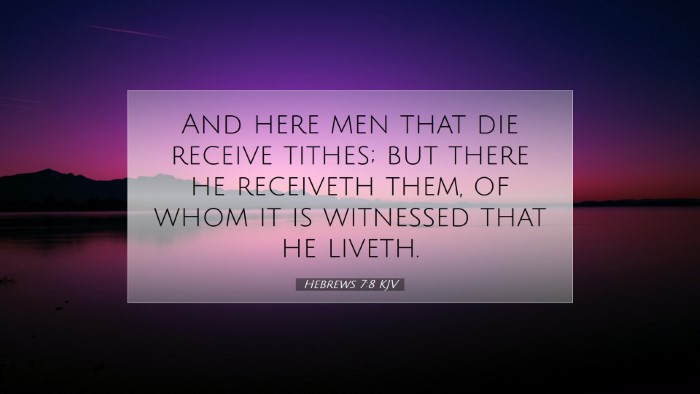Commentary on Hebrews 7:8
Hebrews 7:8 states:
"And here men that die receive tithes; but there he receiveth them, of whom it is witnessed that he liveth."
This verse presents a profound theological reflection on the nature of priesthood and the significance of tithing pertaining to the order of Melchizedek. Below, we summarize insights from various public domain commentaries focusing on critical interpretations and applications.
1. The Context of Hebrews 7
The seventh chapter of Hebrews dives deep into the character and priesthood of Melchizedek, underscoring contrasts between earthly priests and Christ’s eternal priesthood. This chapter has significant implications for understanding the New Covenant and the supremacy of Christ’s priesthood.
2. Insights from Matthew Henry
Matthew Henry elucidates the distinction between the Levitical priesthood and that of Melchizedek. In his commentary, he emphasizes:
- Mortality of Earthly Priests: Henry notes that "men that die" signifies the temporary and fallible nature of earthly priests. This mortality contrasts sharply with the eternal nature of Jesus’ priesthood. He highlights the frailty and imperfection of human priests who receive tithes from the people.
- Melchizedek as a Type of Christ: Henry prescribes that Melchizedek serves as a type of Christ, illustrating a priesthood that transcends the law and human lineage. His referencing of tithes received is thus a foreshadowing of Christ's eternal glory.
3. Insights from Albert Barnes
Albert Barnes provides a meticulous exegesis of this verse, focusing on the implications for the believer’s understanding of sacrificial giving and divine providence.
- Tithes as an Act of Worship: Barnes asserts that the act of giving tithes is not merely a financial transaction but a spiritual practice that acknowledges God's sovereignty and provision, even as earthly priests receive them.
- Contrast with Christ's Priesthood: He highlights that while human priests serve temporally, Christ, as the eternal High Priest, continues to receive tithes in a spiritual sense, thereby inviting all believers into deeper communion with God.
4. Insights from Adam Clarke
Adam Clarke focuses on the theological implications of Christ’s eternal character in relation to Melchizedek:
- Witness of His Eternal Life: Clarke emphasizes that it is "witnessed that he liveth," indicating the certainty of Christ's enduring priesthood. The depiction of an everlasting priest challenges the expectations attached to the Levitical system.
- The Nature of Divine Priesthood: Clarke also elucidates that being a priest "forever" (not limited by death) opens the door for believers to approach God without the barriers set by temporal human priests.
5. Theological Reflections
The reflection on Hebrews 7:8 invites profound theological discourse:
- Christ’s Supremacy: This verse opens up discussions regarding the supremacy of Christ’s priesthood over the Old Covenant. Understanding the permanence of Christ serves as a foundation for the believer's faith.
- Giving and Worship: The context of tithing transcends mere obligation; it embodies an act of worship within the eternal framework established by Christ.
- Encouragement for Believers: This verse serves as an encouragement, reassuring believers that their "gifts" are recognized by Christ and contribute to a lasting legacy in His eternal kingdom.
6. Practical Applications
Hebrews 7:8 calls for believers to understand and respond to their relationships with God and the church in meaningful ways:
- Recognizing the Eternal Importance of Giving: Believers are encouraged to reflect on how their giving supports the work of the church and honors Christ as the ultimate High Priest.
- Understanding the Nature of Leadership: If Christ is our eternal priest, church leaders should reflect His character—serving with humility, integrity, and dedication to both sacred and communal responsibilities.
- Affirming Faith in Christ's Eternality: In a world filled with uncertainty, the eternal nature of Christ as our priest instigates hope and confidence in God’s purposes.
7. Conclusion
Hebrews 7:8 serves both as a reminder and a theological affirmation of the deep, abiding relationship believers have with Christ, our High Priest. In bridging the understanding of worship through tithes and the eternal implications of Christ’s priesthood, it brings clarity and purpose to the act of giving and the overarching narrative of redemption.


